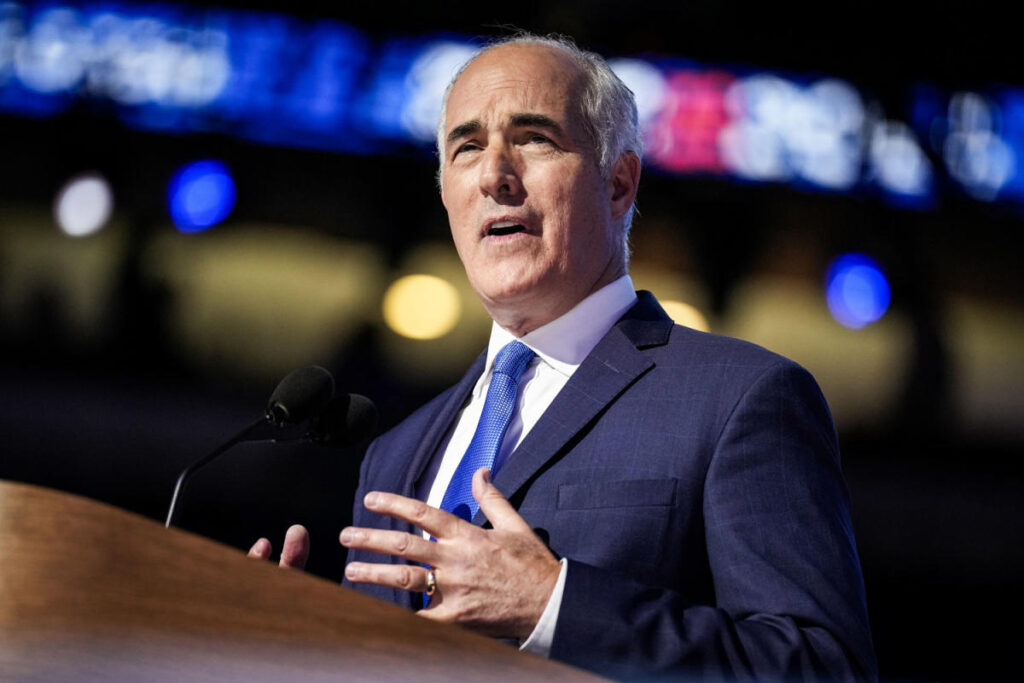In the midst of a fiercely contested Senate race, Senator Bob Casey of Pennsylvania is employing a strategy centered around the concept of “greedflation” to resonate with voters concerned about rising costs. This approach seeks to shift the narrative from blaming government policies for inflation to emphasizing that corporate greed has significantly contributed to increasing prices. As he campaigns for reelection in a battleground state, Casey’s populist economic messaging positions him as an advocate for everyday Americans, asserting that many large corporations exploit adverse economic conditions to boost profits at the expense of consumers. His emphasis on tackling “greedflation” reflects a broader strategy for Democrats facing similar inflation concerns across the nation.
Casey’s campaign has introduced several ads specifically targeting corporate greed while highlighting instances of price hikes that outstrip inflation rates. This messaging, aimed at simplifying the complex issue of inflation, is designed to connect with voters who may not fully understand the economic underpinnings of their financial struggles but sense that large corporations are profiting unjustly from inflation. Democratic strategist Mike Mikus believes that Casey’s focus on “greedflation” taps into a shared sentiment among voters who feel corporations are taking advantage of inflationary pressures during challenging economic times. His efforts could replicate a national framework for how Democrats approach inflation in their campaigns.
However, Casey’s portrayal of the issue has drawn significant criticism from Republican opponents. They argue that his populist narrative is inconsistent and that he has not previously championed such economic populism. Critics, including Casey’s opponent Dave McCormick, contend that government spending and energy policies are primarily responsible for inflation, dismissing the notion that corporate greed plays a substantial role. In their view, basic supply and demand dynamics should naturally regulate prices, and the focus should be on government-driven economic factors rather than vilifying corporations without substantial evidence.
Throughout the election season, Casey has extensively emphasized corporate greed in his campaign, holding events and releasing legislation aimed at empowering federal agencies to investigate price gouging. He has actively advocated for addressing issues like shrinkflation, where product sizes diminish while prices remain unchanged, showcasing specific companies engaged in these practices. With a dedicated page on his Senate website and references to “greedflation” in campaign ads and debates, Casey has positioned himself at the forefront of this economic discussion, aiming to hold large corporations accountable for perceived exploitative practices.
Despite receiving pushback from economists who criticize the “greedflation” argument as an oversimplification or even a conspiracy theory, the term has struck a chord with some voters. Democrats asserting the significance of this messaging argue that the lived experiences of people purchasing groceries and managing household budgets should inform political discourse. Pennsylvania’s Senator Maria Collett emphasizes the necessity to validate constituents’ feelings about rising costs, reiterating that addressing “greedflation” is essential to alleviate the everyday economic strain faced by families.
Voter sentiments surrounding inflation remain a critical factor in the election, with polls indicating that a significant number of individuals are willing to base their electoral decisions solely on economic concerns. Vice President Kamala Harris has also highlighted the issue, underscoring the administration’s commitment to combatting price gouging as a top priority. Casey’s framing of his opponent, particularly McCormick’s position as a former hedge fund executive, plays into the narrative of detachment from everyday economic realities, allowing him to adopt a more populist stance that resonates within a fractured economic climate. As inflation rates begin to stabilize, the interplay of corporate practices and broader economic policies will likely continue to dominate discussions as both parties navigate their messages ahead of the election.

